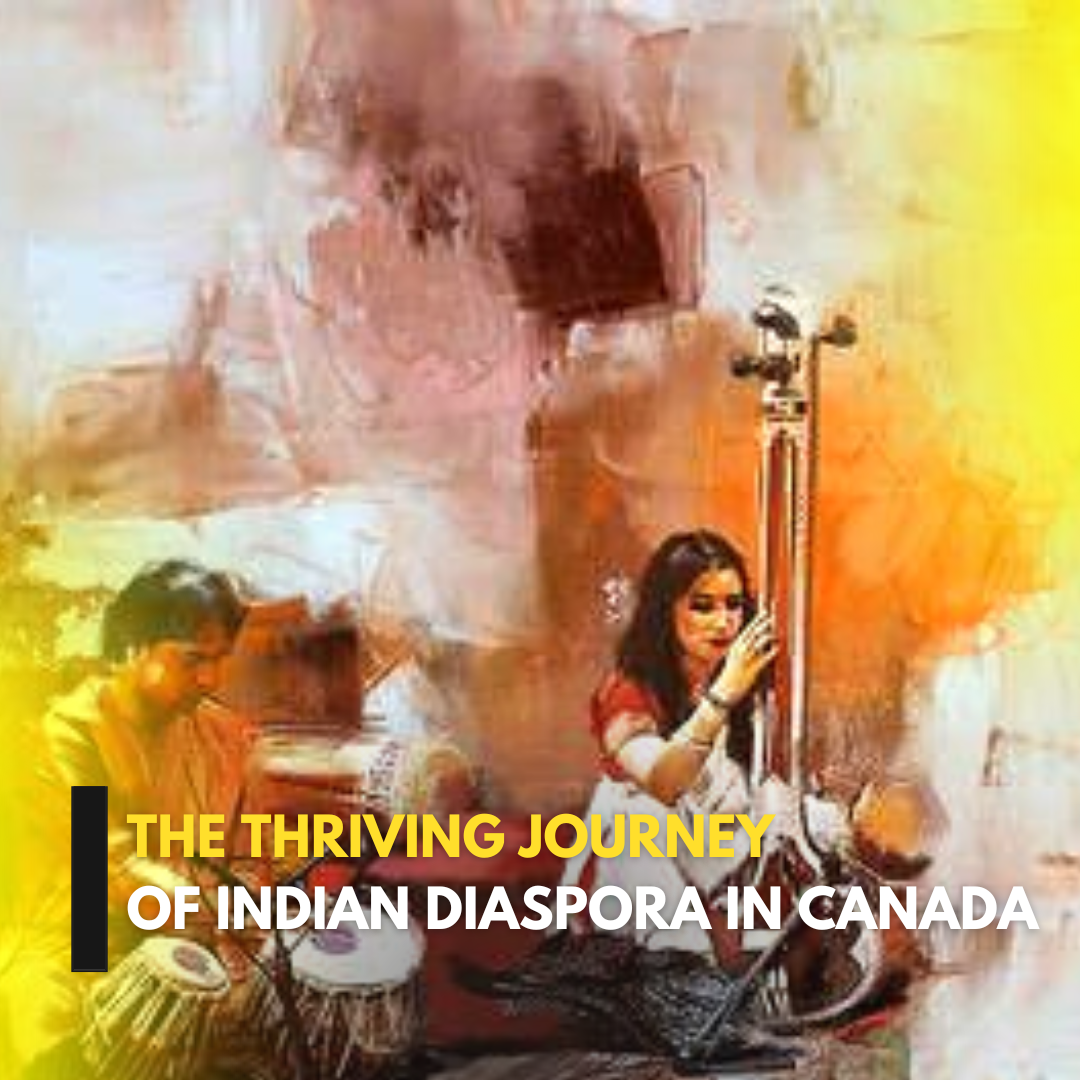The Indian Diaspora in Canada has a complex and significant history that spans over a century. Early Sikh pioneers arrived in the early 1900s to work on Canadian infrastructure, but faced discrimination and prejudice. Immigration policies changed after World War II and more Indian immigrants arrived, many of whom were highly educated professionals and skilled workers. In recent years, the Indian Diaspora has become one of the largest and most successful immigrant communities in Canada. They have contributed significantly to Canada's economy, culture, and society, and have played important roles in Canadian politics. The future prospects for the Indian Diaspora in Canada look bright, as Canada's economy and immigration policies continue to attract highly skilled and educated immigrants from India. However, challenges such as discrimination and integration into Canadian society need to be addressed to ensure continued success.
The Indian Diaspora in Canada: Looking Back and Ahead
The Indian Diaspora in Canada has a long and complex history, spanning over a century. From the early Sikh pioneers who arrived in the early 1900s to the recent influx of highly skilled professionals, Indian immigrants have made significant contributions to Canadian society and economy. In this article, we will take a look back at the history of the Indian Diaspora in Canada and discuss its current state and future prospects.
Early Indian Immigration to Canada
The first wave of Indian immigration to Canada began in the early 1900s, primarily from the Punjab region of India. Most of these early immigrants were Sikh men who came to work on the Canadian Pacific Railway or in the lumber and logging industries. However, these immigrants faced significant discrimination and prejudice, and their rights were severely limited. In 1914, the infamous Komagata Maru incident, in which a ship carrying Indian immigrants was turned away from the Vancouver harbour, highlighted the discriminatory policies of the Canadian government towards Indians.
Despite these challenges, the early Indian immigrants worked hard and contributed significantly to the development of Canada's infrastructure. By the 1920s, some of these immigrants had started to establish businesses and form their own communities, such as Little India in Vancouver.
Indian Immigration in the Post-World War II Era
After World War II, Canadian immigration policies changed, and more Indian immigrants were allowed to enter the country. Many of these immigrants were highly educated professionals and skilled workers who came to Canada to pursue better economic opportunities. In the 1960s, the Canadian government introduced a points-based immigration system that favoured highly skilled and educated immigrants, which further increased the number of Indian immigrants to Canada.
In the 1970s and 1980s, political and economic instability in India led to another wave of immigration to Canada. Many of these immigrants were from the middle and upper classes and brought with them significant financial and human capital. They established businesses, invested in the economy, and became active members of Canadian society.
Current State of the Indian Diaspora in Canada
Today, the Indian Diaspora in Canada is one of the largest and most successful immigrant communities in the country. According to the 2016 Census, over 1.6 million people of Indian origin live in Canada, making up over 4.9% of the country's population. Indian immigrants have made significant contributions to Canada's economy, culture, and society. Many have become successful entrepreneurs, business leaders, and professionals, and have helped to build strong ties between India and Canada.
Indian immigrants have also played an important role in Canadian politics. In recent years, several Indian-Canadians have been elected to federal and provincial parliaments, including Jagmeet Singh, the leader of the New Democratic Party. Indian-Canadians have also been appointed to important positions in the government, such as Harjit Sajjan, the Minister of National Defence.
Future Prospects for the Indian Diaspora in Canada
The future prospects for the Indian Diaspora in Canada look bright. Canada's strong economy and welcoming immigration policies continue to attract highly skilled and educated immigrants from India. The Canada-India relationship has also grown stronger in recent years, with increased trade and cultural exchanges between the two countries. As a result, the Indian Diaspora in Canada is likely to continue to grow and prosper.
However, there are also challenges that the Indian Diaspora in Canada will need to address. One of the key issues is the integration of new immigrants into Canadian society. While Indian immigrants have made significant contributions to Canadian society, they also face challenges such as discrimination, language barriers, and cultural differences. There is a need for ongoing efforts to ensure that new immigrants have the support and resources they need to succeed in Canada.
Conclusion
In Canada has made significant contributions to the country's economy, culture, and society. While the history of the Indian Diaspora in Canada has been marked by discrimination and challenges, the community has persevered and become one of the most successful immigrant communities in the country. The future prospects for the Indian Diaspora in Canada look bright, with Canada's strong economy and welcoming immigration policies. However, there is a need to address the challenges that new immigrants face and ensure that they have the resources and support they need to succeed in Canadian society. As the Canada-India relationship continues to grow, there is potential for even more opportunities for collaboration and exchange between the two countries, which will benefit both the Indian Diaspora in Canada and the broader Canadian society.
Written for Global Indian Series
LEARN MORE: https://journals.sagepub.com/doi/abs/10.1177/097492840506100106?journalCode=iqqa
-------------------------------










